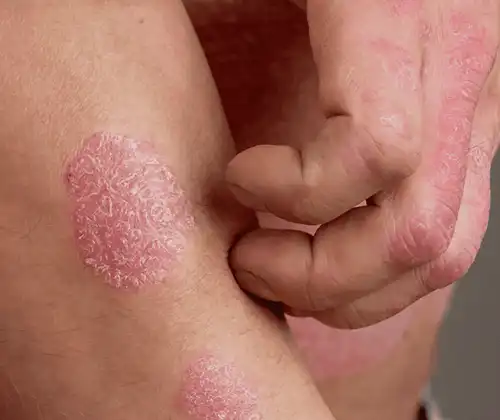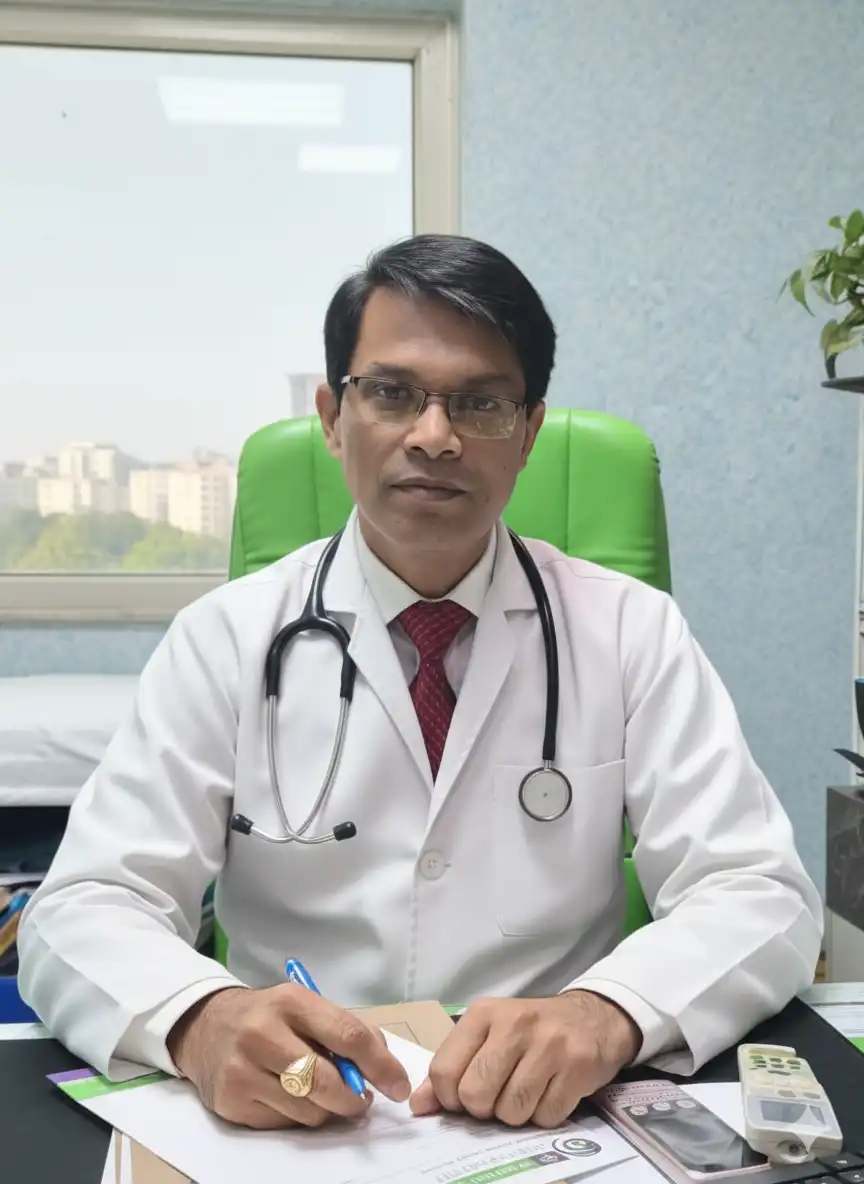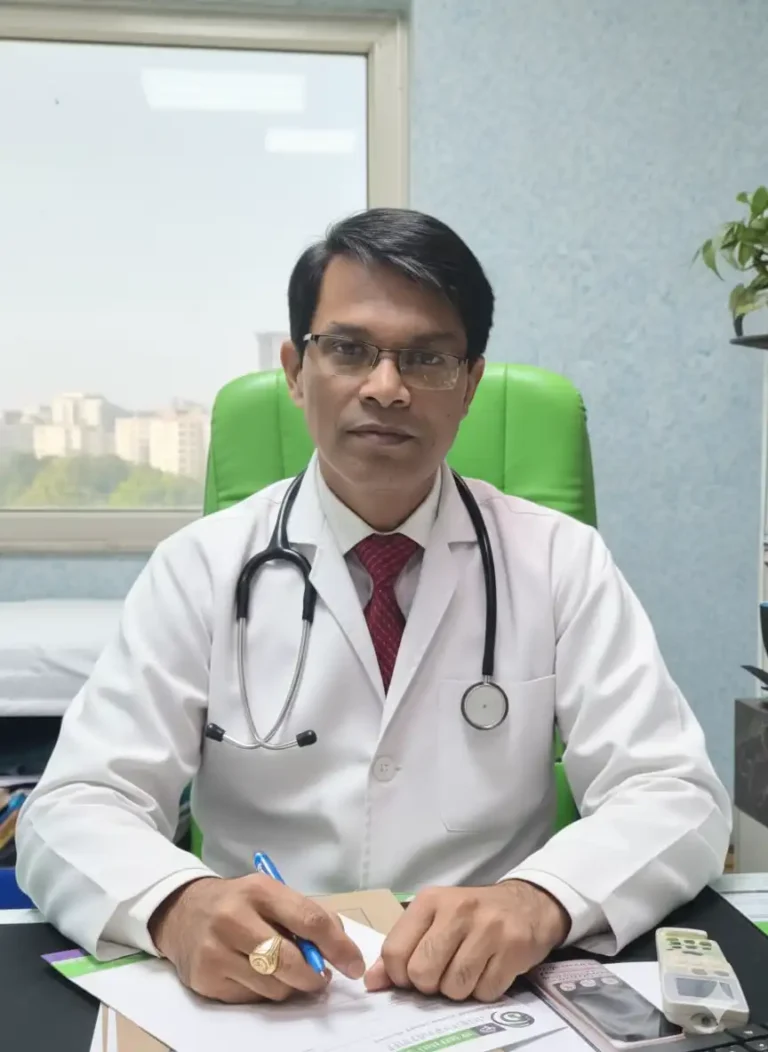
What is Psoriasis?
Psoriasis is a chronic skin condition that speeds up the life cycle of skin cells. Normally, skin cells take about a month to replace themselves, but in psoriasis, this process happens within days. As a result, cells build up rapidly on the surface of the skin, forming thick, scaly patches that may be red, itchy, and sometimes painful.

It is an autoimmune disorder, meaning the immune system mistakenly attacks the body’s own healthy cells, causing inflammation and abnormal skin growth. Psoriasis is not contagious, but it can affect a person’s appearance, confidence, and quality of life.
Symptoms of Psoriasis
- Raised, inflamed red patches of skin.
- Silvery-white or gray scales on affected areas.
- Itching, burning, or soreness.
- Dry, cracked skin that may bleed.
- Thickened, ridged, or pitted nails (nail psoriasis).
- Joint pain and stiffness (psoriatic arthritis in 30–40% of patients).
Types of Psoriasis
There are several types, each with unique characteristics:
- Plaque Psoriasis (Psoriasis Vulgaris):
- Most common form (80–90% of cases).
- Causes raised, red patches covered with silvery-white scales.
- Commonly appears on the elbows, knees, scalp, and lower back.
- Guttate Psoriasis:
- appear as small, drop-shaped lesions.
- Often triggered by throat infections (like strep throat).
- More common in children and young adults.
- Inverse Psoriasis:
- Found in skin folds (under breasts, groin, buttocks, armpits).
- Appears as smooth, red patches without much scaling.
- Pustular Psoriasis:
- Causes white pustules (blisters filled with pus).
- Can be localized (hands, feet) or generalized (severe, life-threatening).
- Erythrodermic Psoriasis:
- Rare and severe form.
- Leads to widespread redness, scaling, and shedding of skin.
- Requires immediate medical attention.
What causes psoriasis?
Psoriasis is caused by an overactive immune system that speeds up the skin cell cycle. Normally, skin cells take about 28 days to renew, but in psoriasis, this happens in just 3–4 days. The rapid buildup leads to thick, scaly patches. Genetics plays a strong role, and having a family history increases risk. While the exact cause isn’t fully known, doctors agree it results from immune malfunction, environmental triggers, and genetic tendency working together. It is not due to poor hygiene.
Is psoriasis contagious?
No, psoriasis is not contagious. You cannot catch it from touching someone, sharing clothes, or being close to a person with psoriasis. It develops because of an overactive immune system, genetic tendency, and certain environmental triggers. Many people mistakenly believe it spreads like an infection, but that’s a myth. Instead of being fearful, it is important to understand that psoriasis is a chronic inflammatory condition. Supporting someone with psoriasis helps reduce stigma and improves their mental health, along with physical well-being.
How common is psoriasis?
Psoriasis is one of the most common skin diseases, affecting around 2–4% of the global population. Men and women are equally affected, and it can occur at any age, though most cases appear between 15–35 years. The most frequent form is plaque psoriasis, which makes up about 80–90% of cases. The severity can vary from small patches to widespread skin involvement. Because it is a chronic condition with flare-ups and remissions, ongoing lifestyle management and proper treatment play a vital role.
Can stress cause psoriasis?
Yes, stress is a well-known trigger for psoriasis. Emotional or physical stress can stimulate the immune system, leading to flare-ups or worsening of existing patches. Stress and psoriasis often create a vicious cycle — stress worsens psoriasis, and psoriasis itself can cause anxiety or low confidence. Stress management techniques such as meditation, yoga, deep breathing, regular exercise, and good sleep can help reduce flare frequency. Seeking counseling or support groups may also improve both mental well-being and skin health.
Can weather or climate worsen psoriasis?
Yes, weather changes can significantly impact psoriasis. Cold, dry winters often make symptoms worse because of low humidity and reduced sun exposure. On the other hand, warm, sunny climates with moderate humidity usually improve psoriasis due to natural vitamin D from sunlight. Excessive sweating and heat, however, may irritate the skin. Using moisturizers, humidifiers, and sun protection helps in extreme weather conditions. For many people, moderate sunlight exposure is beneficial, but it should be balanced to avoid sunburn.
How can I take care of psoriasis at home?
Home care plays an important role in managing psoriasis. Keeping the skin moisturized reduces dryness and scaling. Use gentle, fragrance-free moisturizers and apply them right after bathing. Lukewarm baths with oatmeal, Epsom salt, or Dead Sea salt may soothe itching. Avoid scratching or picking scales to prevent skin injury. Wearing loose, cotton clothing helps reduce irritation. Identifying and avoiding triggers like stress, smoking, alcohol, and harsh soaps is also important. Combine home care with medical treatment for the best results.
What are the best natural remedies for psoriasis?
Natural remedies may help ease psoriasis symptoms, though they are not a cure. Aloe vera gel can soothe redness and irritation, while coconut oil or olive oil helps soften scales on the scalp and skin. Apple cider vinegar may relieve itching when diluted and applied to the scalp. Sunlight in moderation (10–15 minutes a day) can improve symptoms due to vitamin D, but overexposure should be avoided. Always consult a doctor before using natural remedies with medical treatment.
Homoeopathy Treatment for Psoriasis
Homoeopathy focuses on treating the root cause of psoriasis rather than just controlling the visible patches. Since psoriasis is linked to an immune system imbalance, homoeopathy aims to correct that imbalance gently and naturally.
How Homoeopathy Helps:
- Treats the person as a whole – mind, body, and emotions.
- Reduces the intensity and frequency of flare-ups.
- Improves associated conditions like itching, burning, scaling, and joint pain.
- Strengthens the immune system to reduce relapses.
- Addresses the emotional stress that often worsens psoriasis.
Individualized Approach
Unlike conventional medicines that give the same treatment for everyone, homoeopathy gives personalised remedies based on:
- Type of psoriasis (plaque, guttate, pustular, etc.)
- Severity of symptoms (itching, scaling, joint pain)
- Patient’s physical constitution (overall health, stamina, family history)
- Patient’s mental and emotional state (stress, anxiety, lifestyle factors)
Benefits of Homoeopathy in Psoriasis
- Safe and gentle – no harsh side effects.
- Non-addictive and suitable for long-term use.
- It can be taken by children, adults, and the elderly.
- Works alongside lifestyle changes for long-lasting improvement.
Why choose Dr. Sanjay’s Homoeopathy for Psoriasis treatment in Lucknow, India?
Dr. Sanjay’s Homoeopathy is a trusted clinic for safe and effective psoriasis treatment in Lucknow, India. With years of experience, Dr. Sanjay provides specialized psoriasis homeopathic treatment that helps reduce itching, scaling, redness, and skin inflammation naturally without harmful side effects. As a leading homeopathic doctor in Lucknow, he follows international treatment standards and offers personalized care to manage both chronic and recurring cases of psoriasis. Patients choose Dr. Sanjay’s Homoeopathy for its holistic healing, long-lasting relief, and compassionate approach in treating complex skin conditions like psoriasis.


